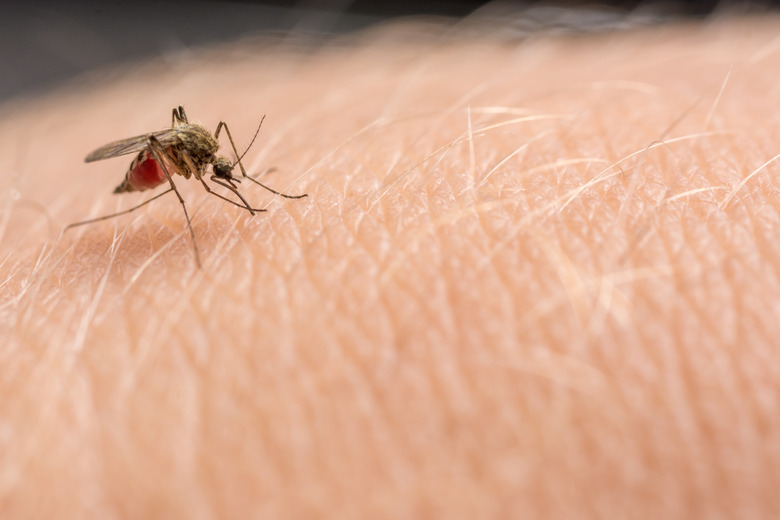Positive Effects Of Mosquitoes
One of the most reviled insects in the world, the mosquito is generally not very well thought of among people and scientists. These tiny, flying, bloodsucking insects earned their bad reputation because they can spread diseases such as malaria and the plague and also because mosquitoes can lurk anywhere and live inside your home without being detected for a number of days. Mosquitoes also produce larvae that live in standing water and can breed and reproduce almost anywhere there is even the tiniest little bit of stagnant water. With all of these negative things surrounding mosquitoes, many people often wonder about what, if any, positive effects mosquitoes have on the world around them.
The Vital Role of the Mosquito on the Food Chain
The Vital Role of the Mosquito on the Food Chain
One positive effect of mosquitoes is that their larvae and full-grown forms provide food for a number of different animals and organisms. For example, dragonflies feed on mosquitoes and their larvae, as do bats. Fish often eat the larval forms and even snack on adult mosquitoes that linger too long on the surface of the water when they are laying their eggs. All of these organisms provide food for other animals along the food chain.
Pollination
Pollination
Another positive effect that mosquitoes have is that they can help to pollinate certain plants, especially the aquatic or near-aquatic plants that they spend much of their lives around. By doing so, mosquitoes help perpetuate these plants, which can provide cover and shelter for other animals and organisms. Increased plant life is also helpful as plants engage in the necessary process of photosynthesis, ensuring there is enough oxygen.
Increased Species Diversity
Increased Species Diversity
Because of the role mosquitoes play, there are a greater number of species in the environment. For instance, chickadees, gray catbirds, swallows, house wrens, bluebirds, warblers, vireos, tanagers, sparrows and orioles all catch flying insects while those insects are in the air, allowing the birds to consume the bugs without perching and themselves potentially falling victim to predators, thus helping to ensure the survival of different bird species. Even birds that don't actually eat mosquitoes themselves (seed eaters) sometimes feed their young on mosquitoes, which means mosquitoes can help a new generation of birds to grow, ensuring the continuation of that bird species. The link between mosquitoes and species diversity doesn't end with birds, either. Mosquito pollination helps to ensure different types of plant life thrive. Having many different species of animals and plants is beneficial for a functional ecosystem.
Medical Discoveries
Medical Discoveries
When you are bitten by a mosquito, you often do not feel the bite because the mosquito essentially anesthetizes you with his mouth. Some of these anesthetic properties of mosquito saliva have been studied and incorporated in synthetic forms into local and topical anesthetics people use to numb a patient undergoing medical treatment. In addition, according to "Mosquito Info," prototype products have been developed to allow diabetics to test their blood sugar more painlessly with the use of a device resembling the tentacles of the mouth of a mosquito.
Cite This Article
MLA
Writing, Alexis. "Positive Effects Of Mosquitoes" sciencing.com, https://www.sciencing.com/positive-effects-mosquitoes-8513632/. 22 November 2019.
APA
Writing, Alexis. (2019, November 22). Positive Effects Of Mosquitoes. sciencing.com. Retrieved from https://www.sciencing.com/positive-effects-mosquitoes-8513632/
Chicago
Writing, Alexis. Positive Effects Of Mosquitoes last modified March 24, 2022. https://www.sciencing.com/positive-effects-mosquitoes-8513632/
